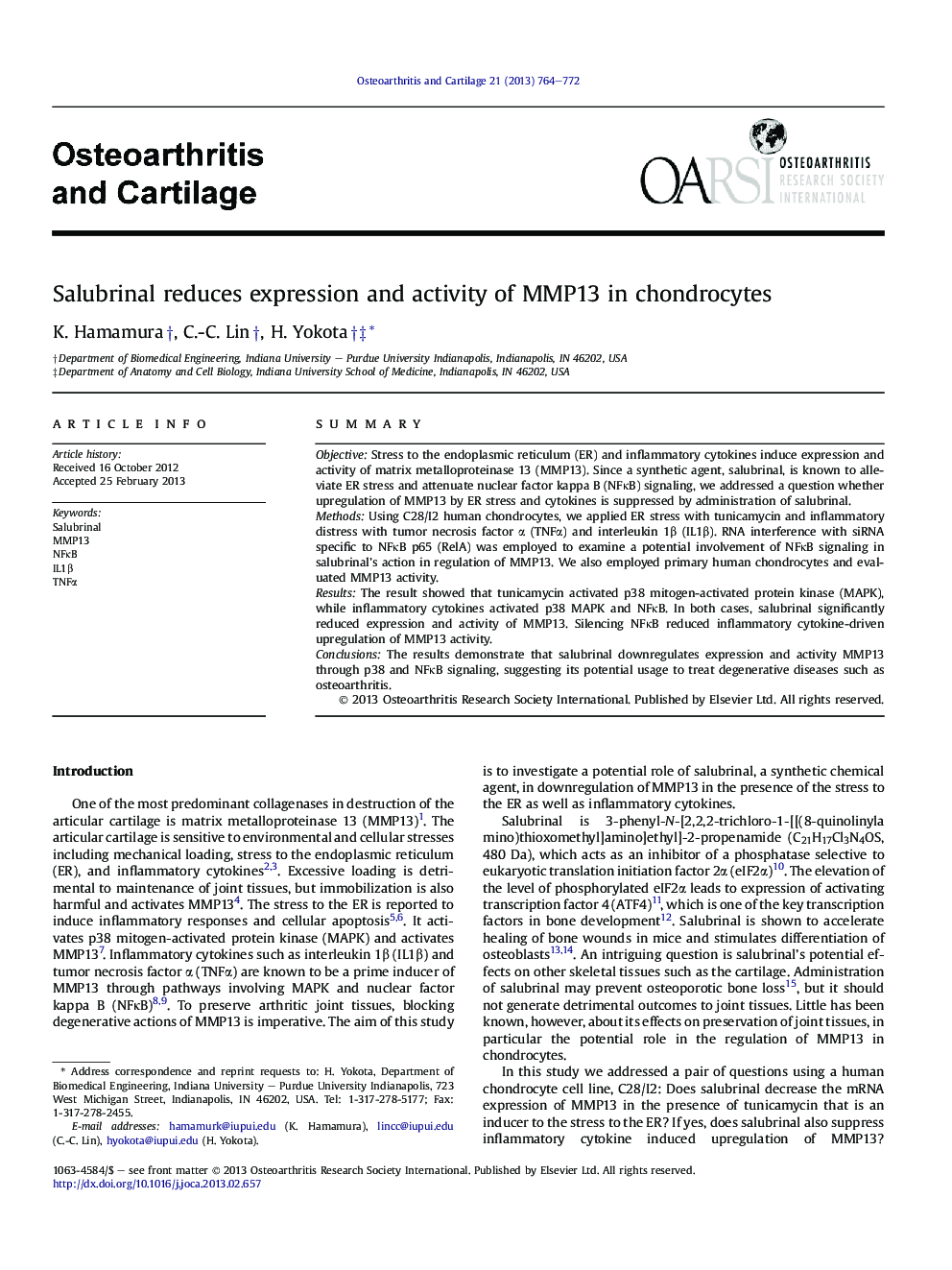| Article ID | Journal | Published Year | Pages | File Type |
|---|---|---|---|---|
| 3379741 | Osteoarthritis and Cartilage | 2013 | 9 Pages |
SummaryObjectiveStress to the endoplasmic reticulum (ER) and inflammatory cytokines induce expression and activity of matrix metalloproteinase 13 (MMP13). Since a synthetic agent, salubrinal, is known to alleviate ER stress and attenuate nuclear factor kappa B (NFκB) signaling, we addressed a question whether upregulation of MMP13 by ER stress and cytokines is suppressed by administration of salubrinal.MethodsUsing C28/I2 human chondrocytes, we applied ER stress with tunicamycin and inflammatory distress with tumor necrosis factor α (TNFα) and interleukin 1β (IL1β). RNA interference with siRNA specific to NFκB p65 (RelA) was employed to examine a potential involvement of NFκB signaling in salubrinal's action in regulation of MMP13. We also employed primary human chondrocytes and evaluated MMP13 activity.ResultsThe result showed that tunicamycin activated p38 mitogen-activated protein kinase (MAPK), while inflammatory cytokines activated p38 MAPK and NFκB. In both cases, salubrinal significantly reduced expression and activity of MMP13. Silencing NFκB reduced inflammatory cytokine-driven upregulation of MMP13 activity.ConclusionsThe results demonstrate that salubrinal downregulates expression and activity MMP13 through p38 and NFκB signaling, suggesting its potential usage to treat degenerative diseases such as osteoarthritis.
